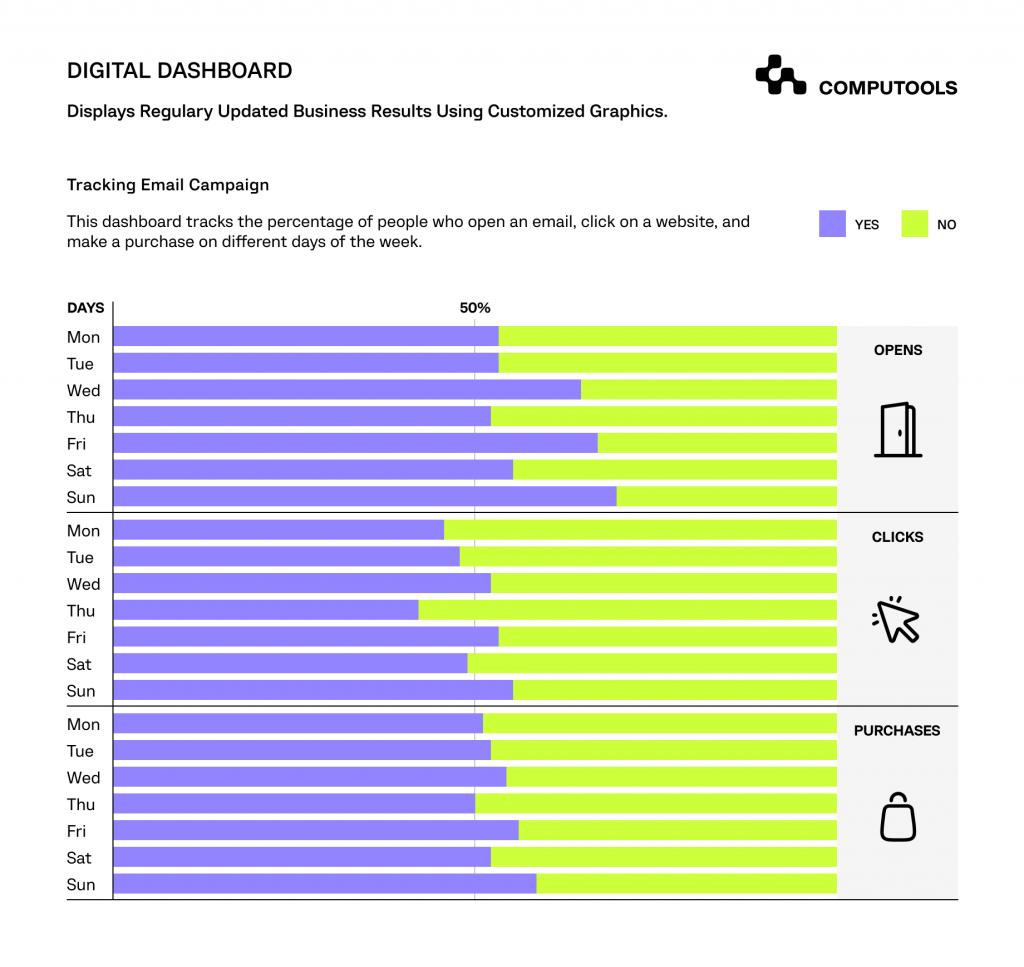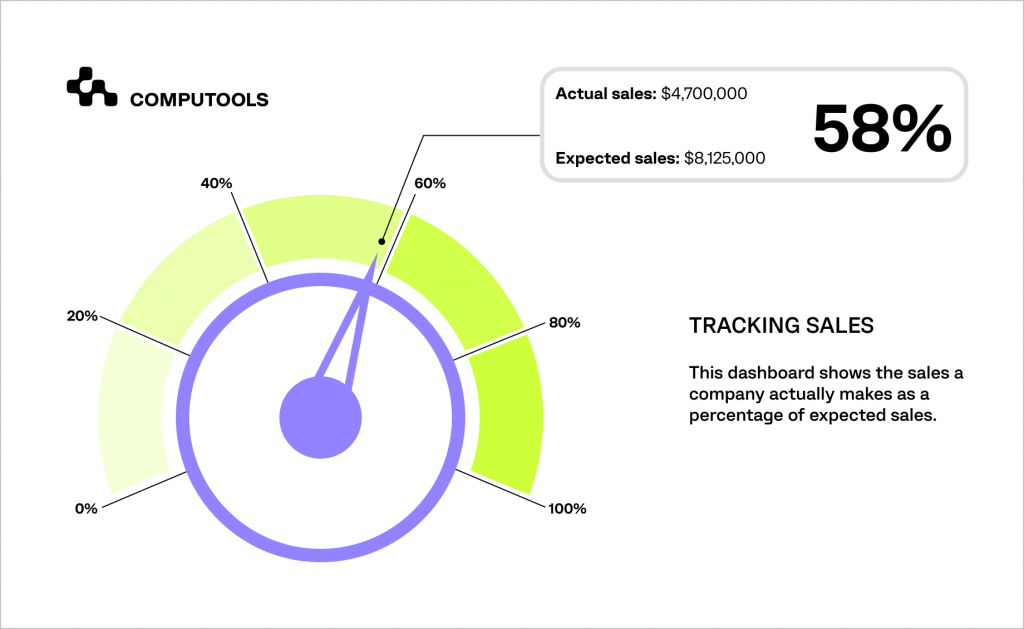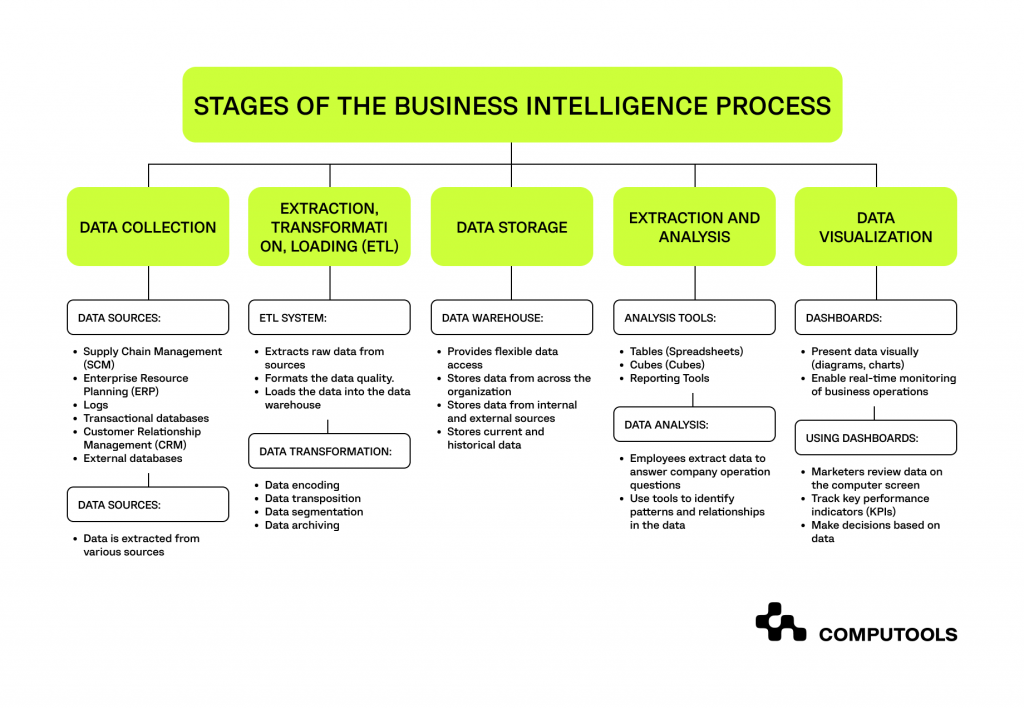BI-analytics helps to make decisions quickly: the technology collects and structures data, and then outputs the result in a human-readable form.
But for many people, such modules remain a ‘dark forest’. In today’s article, we will explicitly explain what BI is, how it works, and why your company needs it.
What BI Is And How it Works
Business intelligence (BI) is the act of gathering, storing, and analysing data to gain insights that may improve business decisions.
The BI process often entails gathering data from numerous sources, cleaning and preparing it, data storing in a data warehouse or data mart, analysing it, and presenting the findings in reports and dashboards.
IBM researcher Hans Peter Moon first mentioned this term in 1958. He called BI ‘the ability to understand the relationships between the facts presented’.
Gartner predicts that by 2025 the software market will be valued at $13 billion.
There are two key reasons why Business Intelligence process is growing increasingly popular:
1. Data growth
Data volumes will double every two years for the next eight years. One of the main drivers of this growth is the increasing proportion of automatically generated data.
2. The need for analysis at different levels
Once data has been converted into information, it must be examined. Due to its high cost, a full-fledged analytics department is not feasible for every company.
BI systems do the analyses; a human only has to evaluate the results and decide. The process doesn’t end there: technologies allow you to track the results of decisions and determine their effectiveness.
BI helps to understand the current state of affairs and predict how these states may change. This is where predictive analytics comes into play.
The Difference Between BI and Predictive Analytics
BI, or business intelligence, is data analysis software that presents data in a convenient visual format such as tables, charts, graphs and maps.
The primary purpose of Business Intelligence process is to analyse past data to show the current state of business processes, often called descriptive analysis.
It is important to note that BI does not provide specific recommendations for action; such decisions are made by senior management of companies using BI systems to obtain the necessary information for planning and operational management.
For example:

This dashboard shows the tendency of people clicking and purchasing. While this one shows how much a company really makes:

Predictive analytics, often known as predictive analysis, is concerned with anticipating future events. This discipline employs data analytics, predictive modelling, and machine learning to forecast potential trends and consequences.
In practice, BI and predictive analytics complement one another: BI assesses present states of affairs, whereas predictive analytics forecasts how those states will change, allowing businesses to make better informed strategic decisions.
The Different Components of a BI Architecture
Usually, the marketer reviews data on the computer screen using a data visualisation tool known as a dashboard, which can be used to monitor real-time business operations.
The wole process is ruled by BI process steps:

How to Implement BI
Before starting to implement a BI system, it is necessary to analyse the needs of the business to determine the goals and objectives that the system should address:
• Improving decision-making
• Optimisation of operational activities
• Improving customer satisfaction and other goals
Specific and measurable implementation goals need to be formulated to evaluate the effectiveness of the system in subsequent phases.
1. Selecting a BI platform
Selecting the right BI platform is a critical step. It is important to consider the company’s current and future needs, technical capabilities, user-friendly interface, customisation options, and integration with existing systems.
2. Formation of a cross-functional team
A cross-functional project team made up of IT specialists, data analysts, business analysts, and project managers is required for successful BI implementation.
Each team member has a specific role: IT professionals handle technical implementation, data analysts assist with model configuration, and project managers coordinate work.
3. Stages of BI system implementation
• Collect source data: Includes collecting data from various sources (CRM, ERP, financial systems, and others), transforming it, and loading it into the BI system to ensure data accuracy and relevance.
• Create analytical models: Develop algorithms and models to analyse data to identify patterns and predict trends.
• Develop dashboards and reports: Visualise data using graphs, charts and other tools to present key metrics and analysis results in a visual way.
• User training and integration into the work of departments: Training of key users for effective use of BI-system in daily work, adaptation of business processes to new possibilities of analysis and data management.
This plan allows companies to systematically prepare for BI system implementation, ensuring maximum efficiency and success of the project.
Challenges of BI Adoption
When implementing Business Intelligence process, companies often face the problem of resistance to change on the part of employees, caused by misunderstanding and distrust of the new work processes.
To successfully solve this difficulty, it is critical to do preliminary preparation, such as training and information sessions, to help staff understand the benefits and perspectives of the new business intelligence system.
Senior management’s support and active involvement are critical in overcoming resistance and demonstrating the project’s strategic value to the entire organization.
Data security and privacy are also key concerns when deploying BI systems, necessitating numerous layers of defense such as encryption, access control, and regular vulnerability testing.
Training staff on the fundamentals of information security and how to manage sensitive data is an essential component of the implementation process, guaranteeing compliance with all regulatory standards and legislation.
Another big problem is integrating the BI system with current systems and procedures. This involves thorough planning and testing to guarantee that the company’s information architecture runs smoothly.
Using ETL tools and following data integration best practices can help reduce risks and assure successful BI system integration.
Implementing a BI system necessitates a systematic approach and consideration of numerous elements, ranging from business objectives and management support to user training, in order to guarantee that it maximizes efficiency and meets the company’s goals.
How Computools Can Help You with a BI Accelerator
Our Business Intelligence System Accelerator transforms how businesses operate by providing CEOs with a comprehensive view — from high-level insights to detailed metrics — via a unified platform that replaces fragmented tools like Google Sheets.
COOs benefit from streamlined processes and customizable dashboards that facilitate collaboration across departments and your business intelligence plan.
CFOs can automate financial reporting and digitize metrics for faster, more accurate decision-making.
The platform empowers strategic thinking by helping set and track goals aligned with your company’s vision, whether you’re a startup founder attracting investors or a CIO optimizing HR management.
Unlike niche solutions, our approach covers comprehensive business development, focusing on scalability and future growth. From goal management to optimizing organizational structures, our platform supports sustained success.
We ensure that your organization gets the most out of our custom software solutions by providing implementation help, training, and continual updates. Experience increased visibility, operational efficiency, and strategic clarity, allowing your organization to succeed in today’s competitive environment.
Real-World Examples of Successful BI Implementation
These examples demonstrate how some of the world’s most well-known brands use BI to gain a competitive advantage, improve operational efficiency, and provide exceptional customer experiences.
1. Coca-Cola
Coca-Cola uses BI and AI-powered picture recognition technology to monitor social media. This allows them to monitor mentions of their products, evaluate consumer mood, and adjust advertising campaigns.
Coca-Cola can better adapt its marketing efforts by evaluating data from platforms such as Twitter and Facebook, resulting in improved consumer engagement and brand loyalty.
2. Starbucks
Starbucks collects and analyzes client purchase data using business intelligence via their loyalty card program and mobile app.
This data enables Starbucks to predict consumer behavior, personalize offerings, and improve the customer experience both online and in-store.
Starbucks may use BI technologies to better align its marketing strategy and product offers with customer preferences, resulting in increased sales and customer happiness.
3. Uber
Uber relies heavily on business intelligence (BI) for real-time data analysis to improve operations and the user experience.
Uber uses complex algorithms to analyze factors such as driver availability, passenger demand, and traffic conditions before implementing dynamic pricing.
This data-driven strategy guarantees that pricing reflects real-time market conditions, hence increasing revenue and service efficiency.
You can leverage comprehensive software development services and Big Data services to innovate and scale your data initiatives.
For more information on how Computools can assist your organisation in implementing BI solutions, please reach out to us at info@computools.com.

Computools
Software Solutions
Computools is a digital consulting and software development company that delivers innovative solutions to help businesses unlock tomorrow.









“Computools was selected through an RFP process. They were shortlisted and selected from between 5 other suppliers. Computools has worked thoroughly and timely to solve all security issues and launch as agreed. Their expertise is impressive.”